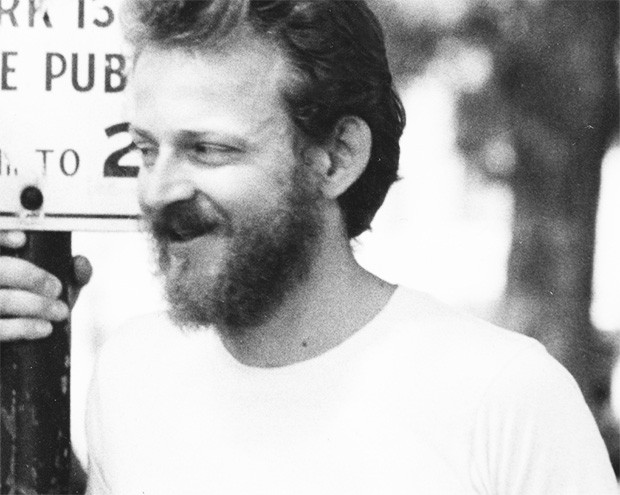Thomas Waugh on coming out: 'The young are being much more inventive'
 Thomas Waugh in the 1970s: "The meaning and parameters of coming out have been in constant flux."
Thomas Waugh in the 1970s: "The meaning and parameters of coming out have been in constant flux."
On Sunday, August 16, Montreal's Pride Parade celebrates its 36th anniversary.
Thomas Waugh, Concordia Research Chair in Documentary Film and in Sexual Representation, came out two years prior to its inauguration in 1979. He movingly described the process in the Montreal Gazette this week.
We asked Waugh: how have things changed today?
Politics and the academics of porn: a chat with Thomas Waugh
You came out as gay in 1977. It seems, these days, that young people are increasingly coming out early on in their careers — Michael Sam and Frank Ocean, to name two celebrity examples — or are being open about their sexuality from the get-go.
Are we moving towards a world where coming out ultimately won't be necessary?
THOMAS WAUGH: I hope so, but how fast are we moving?
One of my students was shunned by his family and religious community upon coming out — this in the second decade of the 21st century in Canada, and he is far from alone. Look at the stats about street kids and teen suicides…
At the same time, the meaning and parameters of coming out for LGBTQI2 [Lesbian, Gay, Bisexual, Transgender, Questioning, Intersex or Two-Spirit] people have been in constant flux. Now, the young are often being much more inventive and flexible than I and my cohort might have been in the Gay Lib days of the 1970s.
For all its words, the current regime in Ottawa hates sexual diversity, sexual and gender freedom — not to mention young people — more than any other western government. Raise the age of consent! Recriminalize sex work! Criminalize non-disclosure of HIV/AIDS serostatus in safe consensual relations! Punish injection drug users by encouraging HIV transmission! Deny the significance of the phenomenon of missing and murdered aboriginal women!
“Coming out” cannot be considered in isolation from this very rocky political landscape.
I was at the Mumbai International Queer Film Festival last year, where sex- and gender-diverse communities were very apprehensive about the renewed criminalization of same-sex relationships in India: an obvious reminder of the cultural relativity of sexual and gender identities and rituals such as coming out. At the same time, India and Nepal offer three gender options on their state-issued identity papers!
At Concordia, you've been researching and teaching about sexual representation in cinema for more than 30 years. What are a few major changes you've noticed in the course of your career?
TW: In the early 1980s, we moved carefully: the university’s sex representation course was a seminar for majors, and tightly controlled, extremely sensitive to ethical and other issues.
As the sex/porn wars slowed down, and my discipline began to catch up with publications on porn in the journal Jump Cut and from academic presses in the late 1980s — such as Linda Williams’ book Hard Core — my discipline, along with Women’s Studies and Cultural Studies, took greater interest in catching up with the rapidly transforming cultural environment.
We began to open up the Concordia course as a large-enrolment interdisciplinary offering — as an elective, of course, rather than as a requirement. Students responded with amazing maturity, sensitivity and intuition, especially women, queers and transfolks … even straight men, too! It’s been challenging to keep up with them in the age of YouTube culture, but lots of fun.
By the time our Minor in Interdisciplinary Studies in Sexuality hit the ground running in the late 1990s, in collaboration with such great colleagues as Fran Shaver in Sociology and the late Lillian Robinson at the Simone de Beauvoir Institute, we were already raring to go for a Major.
You are also director of Concordia's HIV/AIDS Project. Are there lectures or events planned for the autumn?
TW: My PWA [People With Aids] students, friends and coworkers and I have no doubts about HIV not being over.
We’re very excited about the lineup for the coming year’s community lectures. Everyone is welcome, of course. The talks are dynamite — and sometimes the Q&As afterwards are even better.
Keen to check out a community lecture? See the complete programme of Concordia’s 2015-16 HIV/AIDS series. And find out more about Concordia’s Minor in Interdisciplinary Studies in Sexuality.